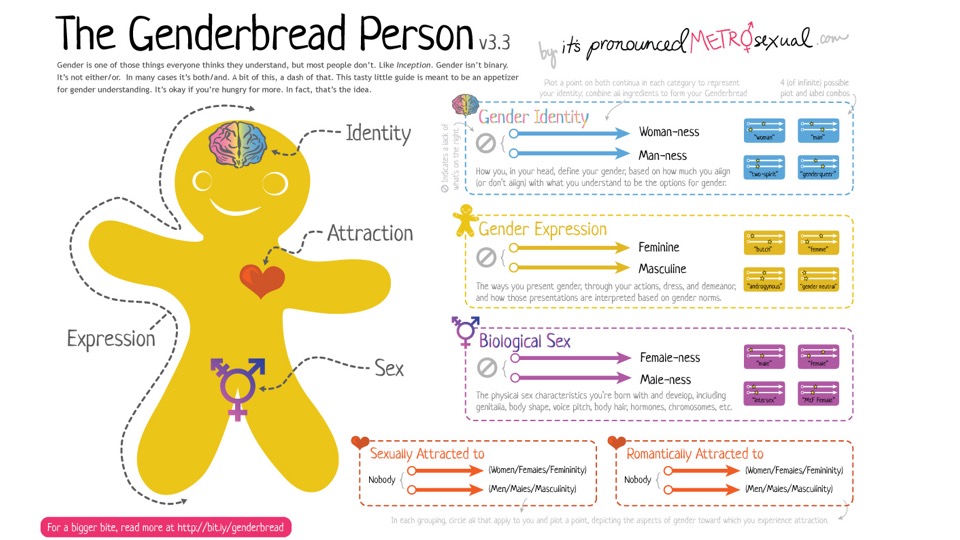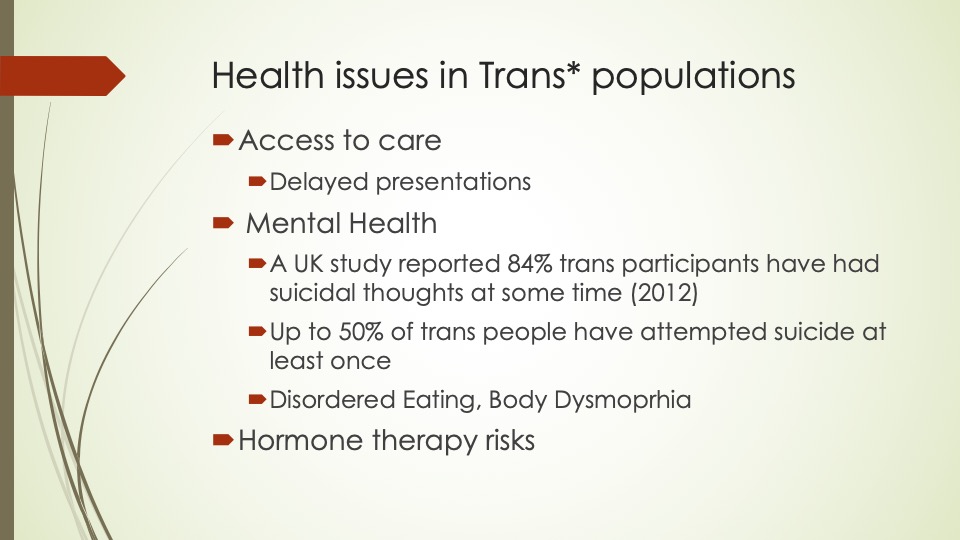Working with Trans and Gender Diverse people. Presented by Dr Nate Reid (MBBS, FRACGP)
It is estimated that globally, around 5–10% of any population are made up of lesbian, gay, bisexual, transgender, and queer individuals (LGBTQI). Trans and gender diverse people have poorer health outcomes due to difficulty in accessing health care services, mental health issues and hormone therapy risks.
Sadly, one of the barriers to equitable health care for LGBTQI populations actually originates in health-care settings. And that’s the attitudes of health care workers.
In his presentation Dr Reid explains how we can provide respectful and equal care to our LGBTQI clients. He explains the terms binary and non-binary and presents the ways in which a person’s gender identity, gender expression and biological sex can be expressed.
The transition process is generally considered to have three stages social, medical and surgical. Nate explains the physical and psychological considerations with these.
The use of feminising and masculinising hormones are discussed along with the health considerations that the use of these hormones require.
Finally, Nate provides us with three key tips when working with trans and gender diverse people.
- Ask your clients their pronoun. Don’t be afraid in asking someone’s pronoun. No one will be offended, and you are potentially going to make someone feel more comfortable accessing your service.
- Always respect people, if someone tells you “this is my name and this is my gender” don’t question it, that is who they are.
- Don’t be afraid to ask. If you have a question you could ask either the client, or a colleague who has experience in working with trans and gender diverse people or contact The Australian Professional Association for Trans Health (AusPATH). People are generally very happy to answer any questions.


Dr Reid currently works in Melbourne as a General Practitioner consulting clients of all ages and backgrounds. As a transman, Nate works with an understanding of sexuality and gender which has drawn many trans people to his practice. He is an advocate for transgender health and informing the medical profession around issues of transgender health. He is good humoured and compassionate and only too happy to answer questions other people may not be comfortable answering.
To register for the presentation and associated documents including the assessment quiz click here